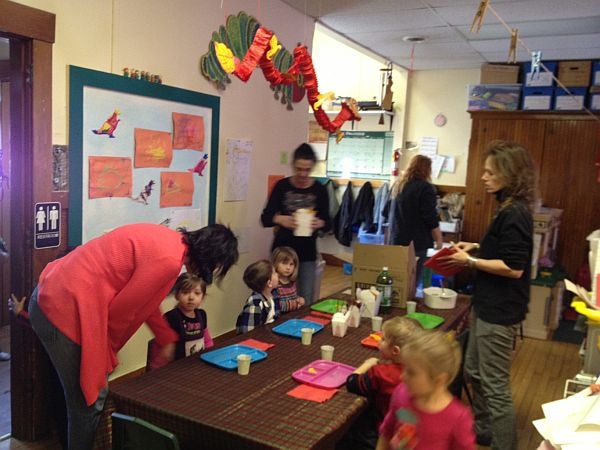
Governor Peter Shumlin has placed a priority on childcare accessibility and affordability, and wants the legislature to provide more funding for parents who need it.
But how is Vermont training child care workers to reach high standards? And how are childcare centers evaluated?
That depends on the size and location of the facility. Caregivers who supervise just two extra families in their homes, no matter how many children, are exempt from state oversight.
Other home based providers must at least register with the state. Child care provided outside a home must be licensed, under stricter guidelines. They can also choose to be rated using a five-star system. The more stars they get, the more generous the state subsidies for parents.
That’s one reason why Creative Spirit, a five-star facility in West Fairlee, has no trouble filling its little seats and cots.
It’s a cheerful place tucked into a former white clapboard elementary school. The pre-school room is packed with educational toys and play areas, and children’s artwork covers the walls.
"What happened this morning?" Director Sheila Bedi asks kids sitting in a circle.
"We played outside," one answers.
"I had fun running around," another adds, eyeing paper containers of Chinese food being set out on lunch tables. The Center is celebrating Chinese New Year.
Bedi is proud of her teachers, and grateful for a mentoring program from the Vermont Childcare Industry and Careers Council that matches entry level workers with an experienced teacher.
"The apprenticeship program is amazing," she says. "To be able to have six college courses for free and the books provided and to have the support the licensed teacher gives our staff here-it’s just an amazing opportunity."
Bedi holds an Associates Degree in Child Development from Johnson State College. The licensed teacher-Jill Kuppers–came to her center from a public school teaching job. Kuppers says a child who attends a good early childhood education program before kindergarten has had more than mere custodial care.
"They’ve been honored for their own approach to learning, other approaches have been modeled, and… they are comfortable in a group," Kuppers says.
But some centers are more likely to help reach those goals than others.
Nancy Sugarman directs the Northern Lights Career Development Center, funded by a grant from the state and partnered with the Vermont Child Care Industry and Careers Council and the Community Colleges of Vermont. She says it’s fairly easy for early childhood workers to find financial assistance for basic training, including online courses, but not so easy to find and afford more advanced courses while holding down a job.
"Especially compared to some other states that have really said childhood providers need to have a college degree, and we’re going to put our money behind making sure that they all have access to it. Our access to college degrees with an early childhood license has actually shrunk over the years," Sugarman laments.
On the brighter side, she adds that Vermont’s child care workers are taking full advantage of professional development programs offered by a number of agencies and institutions, including the Community College system. Since first contracting with the state to provide such training in 2008, Northern Lights has issued career ladder certificates to 720 child care workers. To qualify they must take at least 45 hours of training and craft a plan for continuing education.
But squeezing those courses into nights and weekends, Sugarman concedes, isn’t easy for full-time child care workers.
"So we definitely have a lot to be proud of but I think we still have gaps," she says.